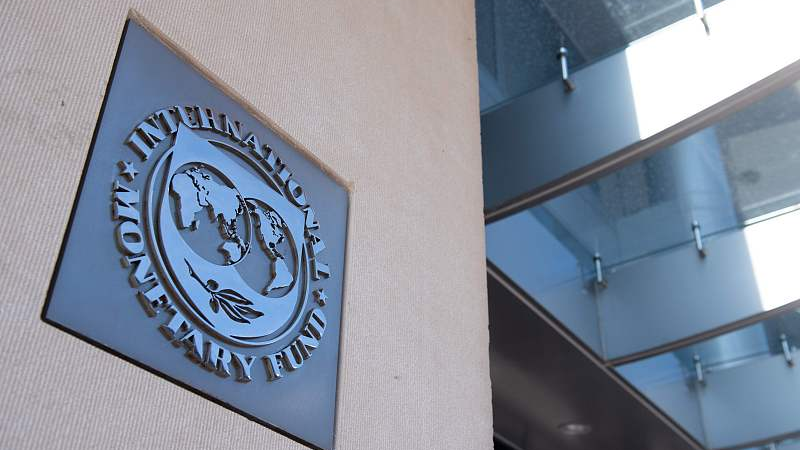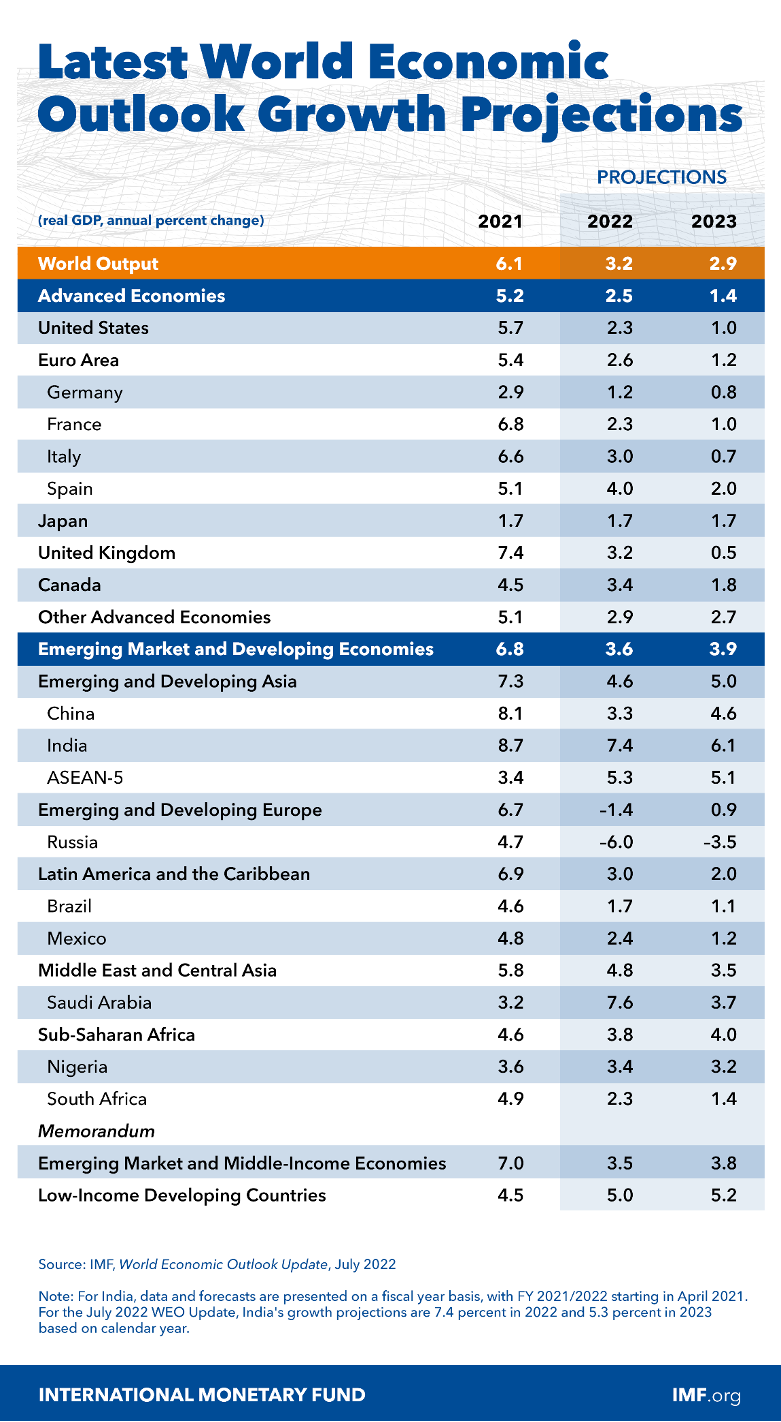
The logo of the International Monetary Fund is visible on its building, in Washington, D.C., U.S., April 5, 2021. /CFP
The logo of the International Monetary Fund is visible on its building, in Washington, D.C., U.S., April 5, 2021. /CFP
The International Monetary Fund (IMF) on Tuesday cut its forecast for global economic growth for 2022 to 3.2 percent, as the world – still reeling from the coronavirus pandemic and Ukraine conflict – now faces increasing risks including high inflation.
The IMF downgraded the forecast by 0.4 of a percentage point from its April 2022 World Economic Outlook, saying "the risks to the outlook are overwhelmingly tilted to the downside."
The outlook report highlighted downturns in three of the world's largest economies – namely the U.S., China and the euro area – that are influencing the global outlook.
The U.S. and major European economies are faced with higher-than-expected inflation, a global trend that is triggering a tightening of financial conditions worldwide, the IMF's latest report said. China has been under pressure due to new COVID-19 outbreaks and its distressed property sector, it said.
Geopolitical fragmentation could impede global trade and cooperation, according to the report. It said the Russia-Ukraine conflict has had further negative spillovers, including heightened pressure on Europe's energy supply.
IMF forecasts a 2.5-percent economic growth for the advanced economies and 3.6 percent for the emerging markets and the developing economies in 2022.

Source: IMF's July 2022 World Economic Outlook
Source: IMF's July 2022 World Economic Outlook
Global inflation has been revised up due to higher food and energy prices as well as lingering supply-demand imbalances. It is anticipated to reach 6.6 percent in advanced economies and 9.5 percent in emerging market and developing economies this year – upward revisions of 0.9 and 0.8 of a percentage point, respectively, from April's outlook.
IMF warned that with increasing prices continuing to squeeze living standards worldwide, taming inflation should be the first priority for policymakers.
Tighter monetary policy will inevitably have real economic costs, but delaying it will only exacerbate these costs, the IMF said. It said that central banks that have started tightening should stay the course until inflation is tamed.
As the outlook has darkened significantly since April, the IMF warned that "the world may soon be teetering on the edge of a global recession." It called for multilateral cooperation in many areas, from climate transition and pandemic preparedness to food security and debt distress.

